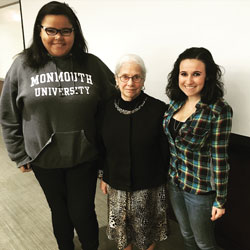Republican Governor Brian Kemp signed Georgia’s 98-page election law at the end of March, according to CBS News. This new voting law has caused a debate between both republican and democratic parties.
The new voting law in Georgia will contain the following: ID must be required for in-person voting and mail-in voting, there will be at least 17 days of early voting, new rules for absentee ballots require shorter time frame for requesting and returning mail ballots, the results of the election will be made much faster, food and drink being distributed to voters by non-poll workers is now banned, and the state election board now has power.
According to USA Today, President Joe Biden called the new law “un-American” and said that it is a “blatant attack on the Constitution and good conscious.”
USA Today also reported that supporters of the new law found that it will make elections much more secure.
Hettie V. Williams, Assistant Professor of History and Anthropology, said that the law should be contextualized within the framework of U.S. history in that there has been a long history of African American voter suppression from the era of Radical Reconstruction to the present.
“There were a series of tactics used by southern states to disenfranchise Black voters including racial terror lynching, poll taxes, and literacy tests during the height of the Jim Crow Era in the early twentieth century that led to the rise of the Civil Rights Movement in the mid 1950s,” said Williams.
Williams continued, “The 2013 Supreme Court decision in Holder vs. Shelby County has eviscerated the Voting Rights Act of 1965, a major achievement in Black voting rights securing during the height of the Civil Rights Movement, and the special protections afforded African Americans in terms of voting rights. Since this decision was made, southern states have found new ways to disenfranchise Black voters as reflected in this new law.”
Sam Maynard, Instructor of Political Science, said that as much as he knows, fraud is very rare in this case. “It does not seem necessary now to clamp down this type on voting restrictions in the name of preventing voter fraud. It seems to be an out of scale response,” said Maynard.
He said that some states are already following in Georgia’s footsteps and that Texas is already pursuing a law that is very similar to Georgia’s.
“I think at the heart of the issue it is sort of whether you see it as preventing, primarily, voters of color from accessing the poles and things like that. It is not just voters of color, though; there are poor voters, working class voters, and things like this,” said Maynard.
He also said that if one sees this as a politically motivated issue, one is inclined to acknowledge that this coalition of voters is likely to vote against republicans.
“The politics of the situation seem more or less clear. I mean this is sort of the line of the last five years. It’s been a staple of the GOP and their platform to sort of clamp down on voter fraud in the name of security. So, I think that is the controversy,” said Maynard.
Ken Mitchell, Ph.D., Political Science Department Chair and Professor, senses that these new electoral provisions are designed to suppress the overall turnout in Georgia elections.
“Republicans believe they benefit from lower turnout elections in swing states such as Georgia. Obviously, such measures are not designed to increase voter turnout. And as the public record shows, there is no evidence of meaningful voter fraud in Georgia or any other state in the country,” said Mitchell.
There has been a lot of controversy regarding having the ID present for mail-in voting as well as in-person voting.
Jasmine Ramos, a senior communication student, said that due to the pandemic, a lot of voters resorted to using mail-in voting to feel safer. She said that it is historically known that mail-in voters tend to be democratic and in-person voters tend to be more republican.
“And because of this, the hard work done by Stacy Abrams and others might have resulted in the state turning blue. This new voter law is just another form of voter suppression to ensure that this doesn’t happen again,” said Ramos.
She also said that during this year’s run-off election, the state gained two democratic seats and the democrats now have control over the Senate. Ramos continued by saying that this is another form of voter suppression.
“As a college student, it’s important to be informed about these things since we are going to be voting in the future. Noticing these things is what’s going to help stop situations like this and just try to create a better voter system overall, where all voices are heard,” said Ramos.
IMAGE TAKEN from Newsweek




